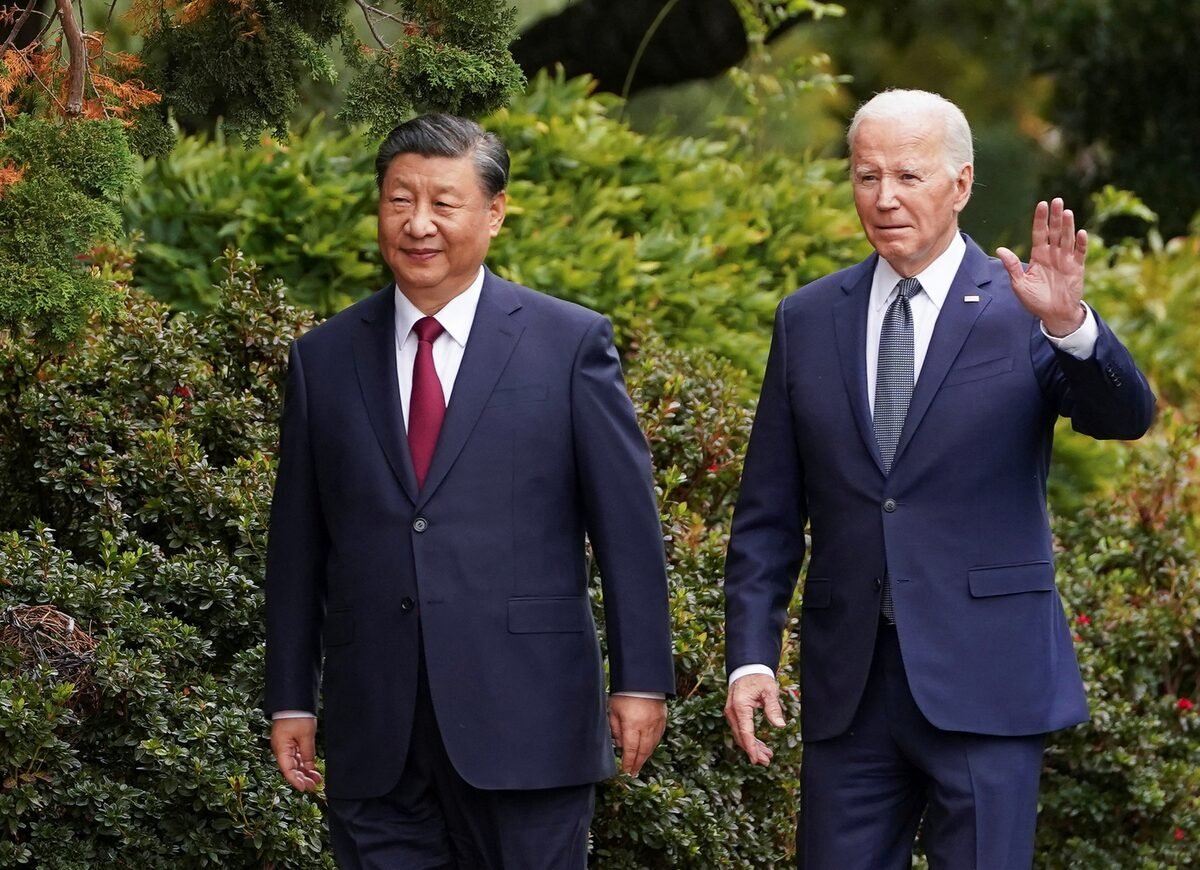
What China Really Wants in the Middle East
The Globe and Mail
November 17, 2023
All eyes were on San Francisco this week as the President of China, Xi Jinping, came to town for the Asia-Pacific Economic Co-operation (APEC) summit. It was a significant event, marking the first time in six years that the Chinese leader has set foot in North America. The summit’s peak was the meeting between Mr. Xi and U.S. President Joe Biden, the two most powerful heads of state on Earth. Mr. Xi arrived at a time of intense global uncertainty and an unfolding humanitarian catastrophe in Gaza.
While the subtext of the Biden-Xi meeting was a warming of relations, the broader context is one of divergence. China has definitively demonstrated this year that its “peaceful rise” is complete, and Beijing now intends to shape the world order on equal terms with Washington. “It is unrealistic for one side to remodel the other,” Mr. Xi declared in San Francisco, “and conflict and confrontation has unbearable consequences for both sides.” The war in Gaza served as the horrifying backdrop to Mr. Xi’s words, a major crisis that China sees as an opportunity. In the long run, this summit may mark the watershed moment when China finally became on par with America.
Consider Mr. Xi’s recent moves. A few weeks ago, Mr. Biden was flying to Israel to contain the war, but Mr. Xi was playing host to more than 140 heads of government in Beijing for his Belt and Road Initiative. This is a trillion-dollar infrastructure and investment project across the developing world that seeks to lock in China’s influence, especially over countries in the Global South. Mr. Xi fostered a rapprochement between Saudi Arabia and Iran earlier this year, invited Israeli Prime Minister Benjamin Netanyahu to China during the summer, and signed a deal with the Palestinian Authority. Speaking to business tycoons in San Francisco, Mr. Xi received a standing ovation.
Beijing’s claim to global leadership comes at a time of intense uncertainty and a vacuum in global leadership. While the United States scrambles to keep the Western alliance intact, China is making a leap forward to great-power status. Nowhere has this been more evident than in the Israel-Hamas war. Unlike past wars in Gaza, Beijing has staked out a clear position in opposition to the U.S., Canada and most of Western Europe. China did not initially condemn the attacks on Israel or name Hamas. Instead, Beijing immediately called for an end to hostilities and a return to the two-state solution. It was a clear break from recent precedent, where China has sought to remain neutral or disinterested in periodic Middle East wars.
This time, however, was different. Beijing dispatched its Middle East envoy to meet with the Arab League. Its foreign ministry has criticized Israel’s actions in Gaza as “beyond self-defence.” It has recently said it wants to do “the utmost” for peace in the region. And, in his first public comments since the war began, Mr. Xi declared China’s top priorities to be a ceasefire and preventing the war from expanding. Unambiguously, China is using the war in Gaza to demonstrate that it is an alternative to the United States and a constructive player in diplomacy.
Unlike during the Cold War, when Mao Zedong believed Third World revolutionaries should stick together, China’s support for the Palestinians in recent years has been more about winning a PR victory over the U.S., while elevating the principle of non-interference in world affairs. What China really wants in the Middle East is order. A regional war is not in China’s interests if it wants to grow economically and keep its own interests – principally Taiwan – in line. But if this war has shown anything, it’s that China can galvanize much of the world’s support for its position.
Beijing’s greater involvement in the Middle East should be encouraged. This way China can share some of the diplomatic burden and, given its influence over Global South countries, help resolve a crisis that has historically been America’s to fix. Commensurate with its new great-power status, China can finally put some skin in the game.
China could serve as an intermediary, a country with no religious connection to the conflict and no special feelings toward any party. It could work with non-Western nations to marshal humanitarian assistance to Gaza, even play host to the parties to the conflict and urge them toward resolution. China could even come to an understanding with the United States, Israel and the Palestinians on a peace accord that makes this war the last one. In this new multipolar world where China is more active, the balance of power can tilt toward less violence.
There was a time when the United States was seen as an honest broker during crises and was expected to solve every geopolitical issue. That time has gone. As power shifts east, and China reassumes its role as a dominant player in world politics, it should recognize the responsibilities that come with such power – and not squander it.